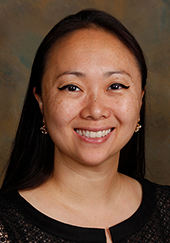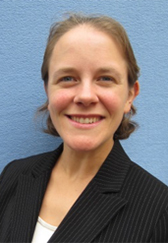Genitourinary Pathology Fellowship

The Genitourinary (GU) Pathology Fellowship is a one-year, non-ACGME program designed for trainees pursuing a career subspecializing in diagnostic GU pathology. The training focuses on building expert diagnostic skills in clinical GU pathology, translational and/or clinical research, and education. The program is flexible and can be tailored towards the individual career goals of the trainee. Eventual careers include academic GU surgical pathologists; clinical, translational and basic science researchers in GU-based diseases; GU-subspecialized community practice; and industry.
Successful applicants will have completed an accredited anatomic pathology or combined anatomic/clinical pathology residency program. Prior completion of a surgical pathology fellowship is recommended, but not required.
Clinical Training and Responsibilities
The fellow will provide a primary role in managing in-house subspecialty GU biopsies and surgical cases, as well as confirmatory and complex consultation GU cases, in conjunction with faculty. Opportunities for graduated responsibility, including mock sign-out and independent sign-out as an attending, may be available. The fellow will also participate in daily GU Pathology consensus conference, bimonthly interdisciplinary tumor board and various research conferences as the trainee’s interests and goals dictate.
As UCSF is a world-renowned center for its expertise in the care of urologic cancers, the fellow will have ample opportunity to gain experience in handling high-volume; and complex, rare, and challenging cases. The annual GU case volume includes approximately 1000 TRUS prostate biopsies, 350 radical prostatectomies, 300 bladder biopsies/TURBTs, 70 cystectomies, 80 kidney core biopsies, 170 kidney resections, 60 testicular specimens, 600 confirmatory cases and over 150 consult cases.
Additional rotations in other GU-related areas can be arranged (e.g., urine cytology, medical renal pathology, molecular pathology of GU tumors), exchanges with other Universities and visits to commercial labs) are also available.
Research
Dedicated time will be reserved for participation in clinical and translational research projects in GU pathology. The fellow will be mentored in design and conduct of a research project that can be individually tailored to personal interest and expertise. Successful projects will be submitted for presentation at national meetings and prepared for peer-reviewed publication.
UCSF is also internationally recognized for its research in prostate and other urological cancers and there are many opportunities to get involved in translational clinical research, in collaboration with attending pathologists, clinicians and researchers from various departments at UCSF and outside of UCSF. Unique research opportunities within pathology and peripheral to it include: NRG Oncology Clinical Trials Material, ALLIANCE Clinical Trials Material, CANARY prostate cancer consortium, Prostate Cancer Program in the UCSF Helen Diller Family Comprehensive Cancer Center, UCSF Prostate SPORE, and one of the largest collections of metastatic prostate cancer through the SU2C West Coast Dream Team.
Teaching
Teaching responsibilities include gross room supervision of residents and pathology assistants for GU specimens, teaching of residents at the microscope and participation in daily teaching conferences. UCSF fellows are also required to present once at the weekly Department of Pathology Mechanisms of Disease conference.
Additional opportunities for medical student teaching, building of digital archives, and leading of other educational conferences are also available.
Primary Faculty
The team of GU Pathology Faculty at UCSF collectively provides a unique spectrum of interests, experiences, and areas of expertise for trainee education. Please visit their websites to find out more about them!
Soo-Jin Cho, MD, PhD
Associate Professor
Director of Pediatric GU Pathology Experiences
(Pediatric GU Pathology)
Patrick Devine, MD, PhD
Medical Director
Director of Hereditary GU Pathology Experiences
UCSF Molecular Genetic Pathology Fellowship Program Director
(Molecular Pathology)
Cornelia Ding, MD, PhD
Assistant Professor of Clinical Pathology, UCSF
UCSF GU Pathology Fellowship Associate Director
GU Pathology Cadre Leader, The Alliance for Clinical Trials
(GU Pathology, Clinical Trials, Research)
Nancy Greenland, MD, PhD
Associate Professor
(Cytopathology, GU Pathology, Research)
Stephanie E. Siegmund, MD, PhD
Assistant Professor
Jeffry P. Simko, PhD, MD
Professor of Clinical Pathology, UCSF
UCSF GU Pathology Fellowship Director
Director, NRG Oncology Pathology Committee and NRG Biobanks
Director, UCSF HDFCCC GU Tissue Bank
GU Pathology Cadre Member, The Alliance for Clinical Trials
(GU Pathology, Biobanking, Clinical Trials, Research)
Deepika Sirohi, MBBS, MD
Associate Professor
(GU Pathology, Molecular Genetic Pathology, Research)
Bradley A. Stohr, MD, PhD
Professor of Clinical Pathology, UCSF
Vice Chair of Anatomic Pathology
(GU Pathology, Molecular Genetic Pathology, Research)
Anatoly Urisman, MD, PhD
Associate Professor
Director of Medical Renal Rotation Experiences
UCSF Renal Pathology Fellowship Program Director
(Medical Renal Pathology)
Poonam Vohra, MD
Professor
UCSF Breast Pathology Fellowship Program Director
(Urine Cytology and Paris System)
Requirements
To qualify candidates must have successfully completed an ACGME-accredited residency in anatomic pathology (AP-3), or anatomic and clinical pathology (APCP-4).
Candidates must have an unrestricted California medical license issued by the Medical Board of California before their start date.
Duration
12 months with a start date of July 1.
Vacation
4 weeks.
Salary, Benefits, & Policies
Fellows will be appointed as a PGY-5.
Please visit the UCSF Office of Graduate Medical Education's Prospective Residents & Fellows Overview webpage for more information.
- Salary and Benefits for UCSF Residents & Fellows
- Contract example for non-ACGME programs
- GME Policies
Application
To apply, please submit the following in PDF format:
- College of American Pathologists Resident Forum's (CAP) Standardized Pathology Fellowship Application
- Curriculum Vitae
- Personal Statement of Interest
- A photo of yourself in JPEG or PDF format.
- Three letters of recommendation should be sent directly from your recommenders and or program coordinator, also in PDF file format.
All application materials are to be submitted in a PDF file format via email to the Fellowship Program Administrator, Thongdam Pathoumthong.
We encourage and welcome all qualified applications to the Genitourinary Fellowship Training Program. This program is open to all who meet academic, professional, and interest criteria. In accordance with Federal and State law and University policy, the University of California does not discriminate on the basis of age, gender, race, ethnicity, national origin, religion, sexual orientation, gender identity, health, or disability. For detailed information, please visit the Office for the Prevention of Harassment and Discrimination.
Important Dates
| 2027-2028 Cycle |
|---|
| Accepting Applications |









